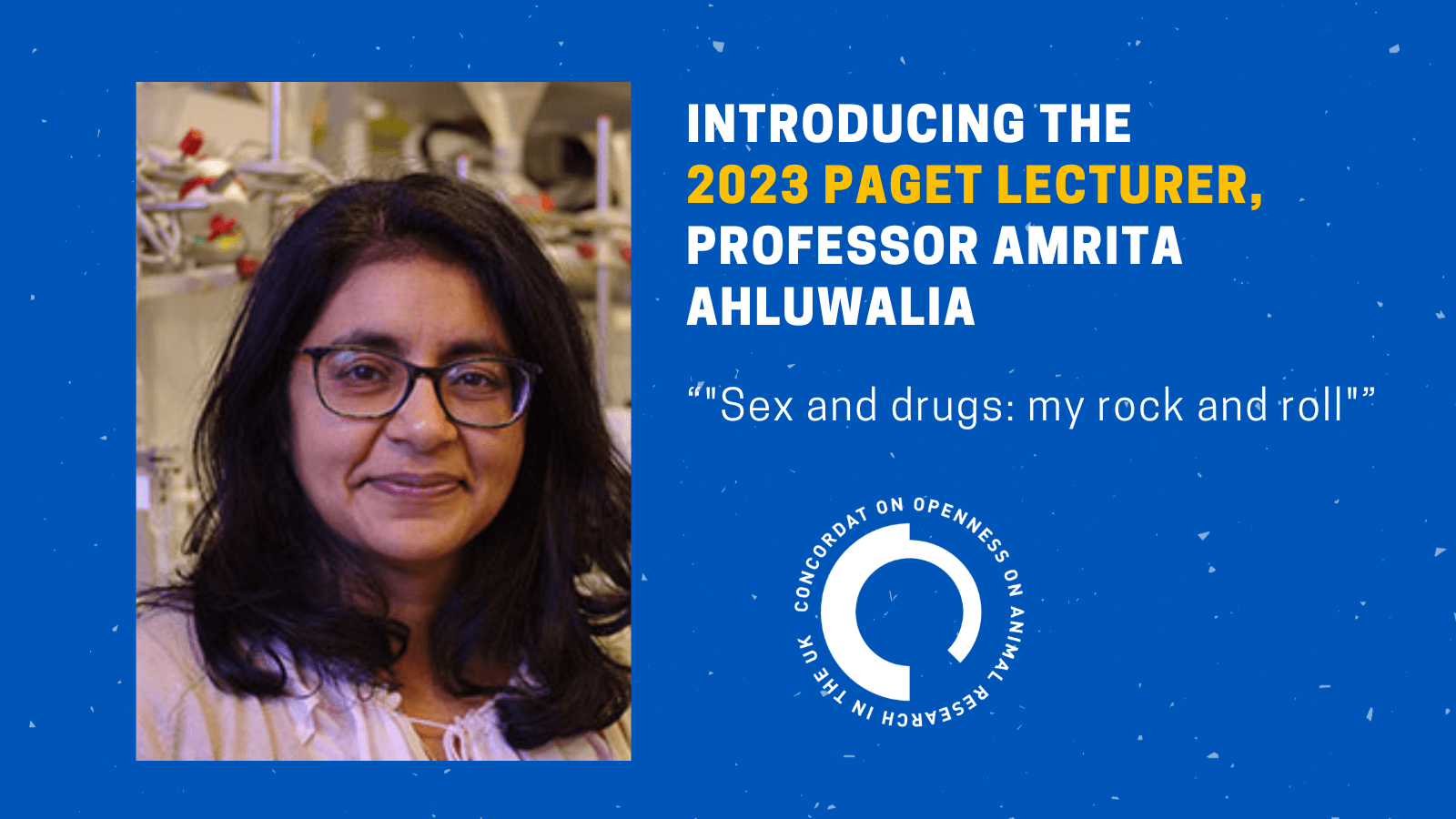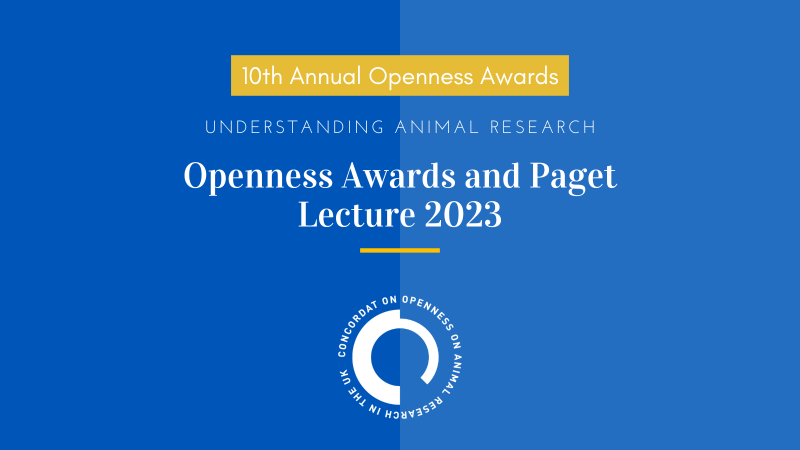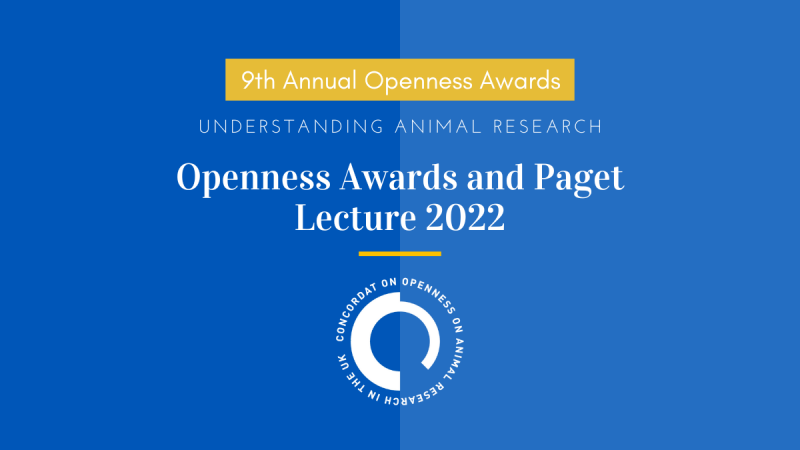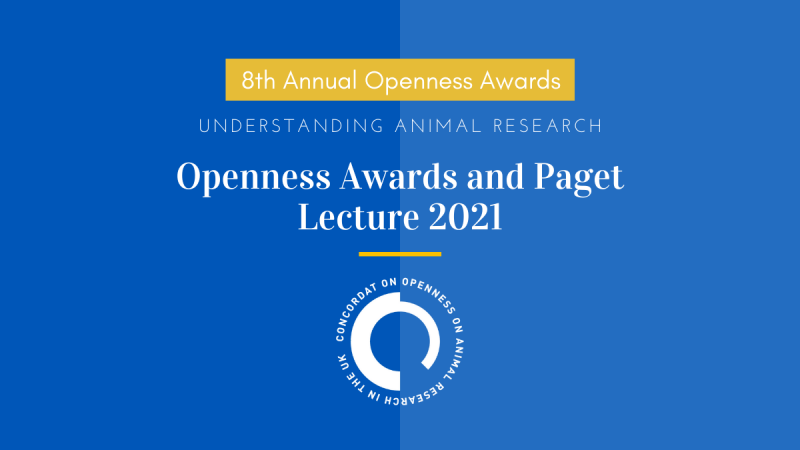
Professor Amrita Ahluwalia is a passionate pharmacologist, currently dean for research (Faculty of Medicine & Dentistry) at Queen Mary University of London, lead of the vascular pharmacology group, and director of the Barts Cardiovascular Clinical Trials Unit. Separately she also chairs the basic and translational section of the International Union of Basic and Clinical Pharmacology (IUPHAR).
On Monday 4 December, Amrita will present the 86th Stephen Paget Memorial Lecture, "Sex and drugs: my rock and roll".
The Paget Lecture is a scientific lecture that commemorates the life of Dr Stephen Paget (1855 - 1926), the founder of the Research Defence Society, a forerunner of Understanding Animal Research, and a medical doctor who believed passionately that better science and understanding of physiology would lead to better medical treatments.
For more information about the 2023 Openness Awards and Paget Lecture, including the winners and a summary of Amrita's lecture, read our latest article.
Before the lecture, UAR interviewed Amrita about her career
Working on the cardiovascular system and diseases, she has throughout her career persistently raised awareness on the sex bias in experimental work, increased diverse representation in biomedical science, promoted responsible animal research, and nurtured the next generation of researchers - a strong, diverse, and plentiful journey that involved animal research.
“Ironically, during the first two years of my pharmacology degree, we weren't exposed to animals at all,” describes Amrita. “But then I dived into the industry with a year out working in pharma at Glaxo - now GSK - and experiencing their efficiency, their knowledge, their systems, their protocols. It completely changed my life. At GSK I gained a broad experience dissecting and collecting tissues from animals under really tightly regulated conditions to look at drug efficacy, notably intended to improve coronary vascular function. I started to really appreciate the end point, the reason why I was doing this work, and where it was going.”
With robustly organised procedures etched into her, Amrita’s work inevitably led her to set up in vivo assays. She details:
“I appreciated the learning potential of in vivo research, as well as the importance of good animal experimental work.”
Amrita eventually stepped up her animal experimental experience, became a Project licence holder for over 15 years, and took on responsibility for the welfare of animals in research. In her own words :
“I’ve never complained about the red tape. The bureaucracy around submitting a project licence is really important. Researchers need to be able to fully justify the use of animals, and that can only be done in detail, not in a two-page document. If we think that our research is that important, then we should take the time to justify it properly.”
One thing, however, that eluded her attention – and the vast majority of the research community – for a long time was the sex bias in research.
“I didn't really think about sex at all – nobody did,” she told UAR. “We only ever did our work on male animals, and not once did I – or anyone else - consider that I was doing biased experiments. No one brought it up – not in educational materials, not during grant submission – there were never any queries about the sex of the animals we were using.”
In fact, Amrita started to consider sex completely by accident. She was working on a new project studying an endothelial mediator for which she generated a knockout mouse de novo.
“I was breeding this knockout mouse. It was quite complicated and generated a lot of animal wastage, notably because we weren’t using the female mice for our experimental work,” details Amrita. “We were originally only researching males. Nobody was calling this into question at the time - not the home office, not the university - no one. But looking at all these extra animals, I started questioning why we were not experimenting on the females. So we did in 2002. And in doing that, we made a massive discovery.”
The mice that Amrita and her team had generated turned out to exhibit practically no phenotype in the males and a massive phenotype in the females. She found that agents that reduced blood pressure would do so using a completely different mechanism in males and in females, triggering the release of completely different mediators.
“If you were looking to interfere with those responses in males, you would need certain types of drugs that would be completely different in females,” she explains.
This fits with the general realisation that many of the drugs used to treat cardiovascular diseases today, treat male disease, and do not treat the disease of women. The lack of female animal models in research is partly responsible for women not being well served with the medications available to treat blood pressure, to stop coronary artery disease and other pathologies. Even nowadays, a woman that has had a heart attack, has a much worse outcome and double the risk of having another serious event, in comparison to her age matched male counterpart.
“That accidental work in female mice completely changed everything we do in my lab today. Since then, we’ve always used both sexes,” Amrita told UAR. “And in doing so, we've found loads of really interesting findings in our preclinical research which have pretty much all led to translations in the clinical setting. The experiments in the mice led me to do the experiments in humans. Without those in vivo studies, I would have never done the clinical work that followed.”
And Amrita’s work in humans showed exactly the same trend : women resolve and recover from inflammation much faster which explains why women may be less susceptible to heart disease. By helping identify therapeutics that can be equally applied to men and women, her discovery of the underlying molecular pathway could be instrumental in prevention of cardiovascular disease and helping recovery.
“I'm very happy with that scientific discovery. But I’m also pleased about the best practices we’ve picked up from our work. In research, and particularly in animal experimentation, we must learn from what we do, and change our practices accordingly. As long as we adopt best practices when they come our way, we will continue to make a difference. It is a key part to discovery.”
In the seven years Amrita served as Editor in Chief of the British Journal of Pharmacology, she helped generate an incredible amount of practical, pragmatic, useful, helpful, internationally relevant guidance on animal experimentation. One of them was the consideration of sex as an experimental variable, ahead of the curve.
“I'm very proud of that,” she states, rightfully so.
Read about previous Paget Lectures.
Last edited: 15 December 2023 15:17



